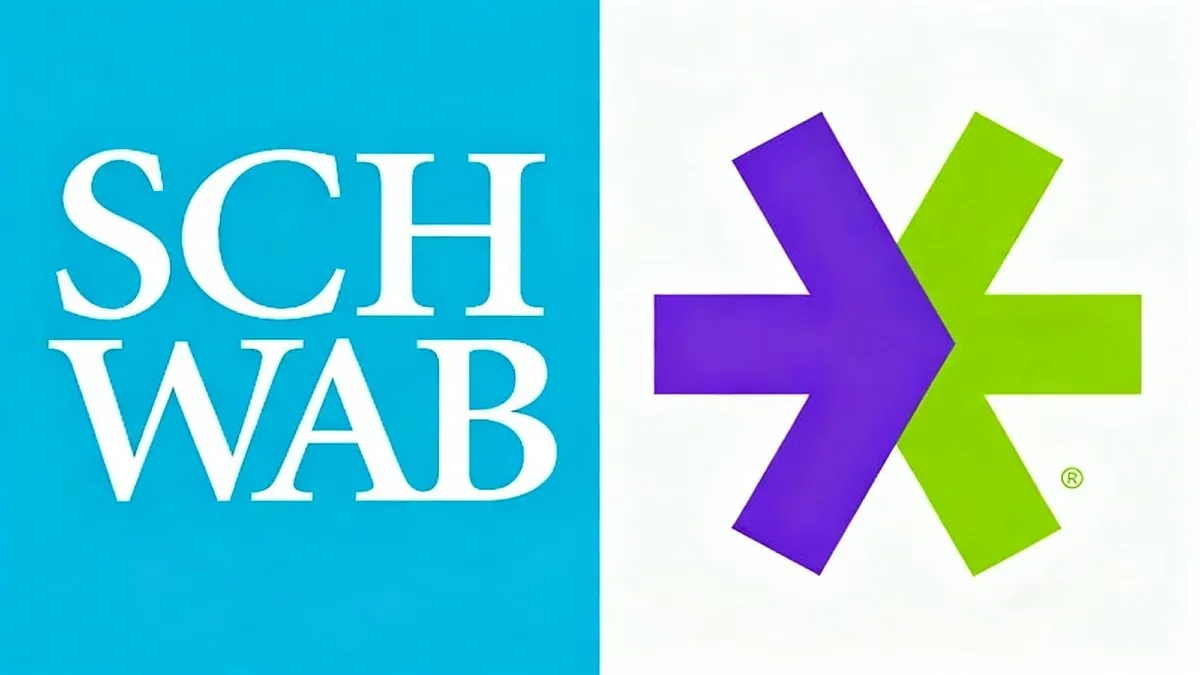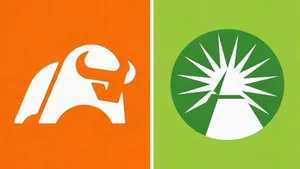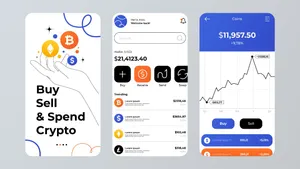If you are researching a move to a professional trading platform, you will inevitably look at TD Ameritrade and E*TRADE. There is one major fact you must know: TD Ameritrade no longer exists as a separate company.
Charles Schwab acquired TD Ameritrade. Your money, your accounts, and your assets will all transfer to Schwab. This article is therefore a comparison between Charles Schwab (with the thinkorswim platform) and E*TRADE (with the Power E*TRADE platform).
This comparison is a battle between two giants who offer nearly identical, $0-commission trading. The choice depends on which platform offers the better tools and support for the beginner who plans to eventually become an active trader.
The Platform Showdown (thinkorswim vs. Power E*TRADE)
Both brokerages cater to two different investor types: the long-term passive investor (who uses the basic website) and the advanced active trader (who uses the dedicated desktop app).
🏆 Winner: Charles Schwab (thinkorswim)
Schwab now owns thinkorswim (ToS), which is widely considered the most powerful and comprehensive trading platform in the industry.
- Charting Power: Thinkorswim offers over 374 technical indicators. Traders can fully customize charts, create custom studies using the thinkScript coding language, and layer complex economic data overlays.
- Beginner Access: ToS provides a fully functional paper trading simulator. A beginner can practice every single strategy with fake money before risking any real capital.
- Verdict: If your ultimate goal is to become an options or futures trading expert, thinkorswim gives you the best, most advanced toolbox to grow into.
E*TRADE (Power E*TRADE)
E*TRADE’s primary trading tool is Power E*TRADE. This is a robust platform perfectly suited for intermediate and active traders.
- Analysis: Power E*TRADE offers a strong suite of analysis, technical studies, and drawing tools (over 100 technical studies).
- Usability: Many users find the Power E*TRADE platform easier to navigate than the dense thinkorswim platform, making the transition simpler.
- Drawback: The platform lacks the sheer depth of customization and the high number of indicators available on thinkorswim.
The Beginner Investor Experience
Since both platforms are commission-free, the quality of education and the basic features for a small account determine the better starting point.
🏆 Winner: Charles Schwab
Schwab has invested heavily in creating the best entry experience for new investors.
- Education: Schwab is consistently rated best-in-class for its educational resources. It provides detailed articles, videos, and live webinars that seamlessly integrate with the platform. They also offer quizzes and progress tracking to help beginners monitor their development.
- Starter Kit: Schwab's Investor Starter Kit is a key differentiator. A new user gets $101 to invest across five top S&P 500 stocks when they fund their account. This combines education with immediate action.
- Fractional Shares: Schwab offers Stock Slices (fractional shares) for S&P 500 stocks. While this is not as broad as Fidelity's offering, it is a crucial feature for the small-account investor practicing Dollar-Cost Averaging (DCA). E*TRADE does not offer fractional shares.
E*TRADE's Offerings
E*TRADE also provides extensive educational resources, including options specialists for trading advice and a strong suite of retirement planning tools. The platform is excellent, but Schwab's dedicated starter programs and its support for fractional shares give it the edge for the beginner.
Fees and Investment Offerings
Comparing the two reveals that the cost of common trades is nearly identical, but differences appear in niche assets.
| Feature | Schwab (thinkorswim) | E*TRADE (Power E*TRADE) |
| Stock/ETF Commissions | $0.00 | $0.00 |
| Options Contracts (Standard) | $0.65 per contract | $0.65 per contract (drops to $0.50 at 30+ trades/quarter) |
| Futures Trading | $2.25 per contract | $1.50 per contract |
| Cryptocurrency | YES (Direct crypto trading) | NO |
| Fractional Shares | YES (Limited to S&P 500 stocks) | NO |
| Mutual Funds (Non-Proprietary) | Up to $74.95 commission | $0.00 commission |
Conclusion on Cost: The major difference for frequent traders is the cost of futures (E*TRADE is cheaper) and options (E*TRADE is cheaper for high-volume traders). For the average stock investor, costs are a non-factor.
Final Verdict: Which Platform to Choose?
If your goal is to grow into an advanced, complex options or futures trader, E*TRADE may save you money on volume fees, but you will give up fractional shares.
For the vast majority of beginners, Charles Schwab is the superior starting platform in the post-TDA merger landscape. Schwab offers a highly rated educational experience, support for fractional shares (for S&P 500 stocks), superior charting tools via thinkorswim, and a wider range of investment options (including crypto). Schwab provides the best combination of beginner support and professional-grade tools to grow into.






